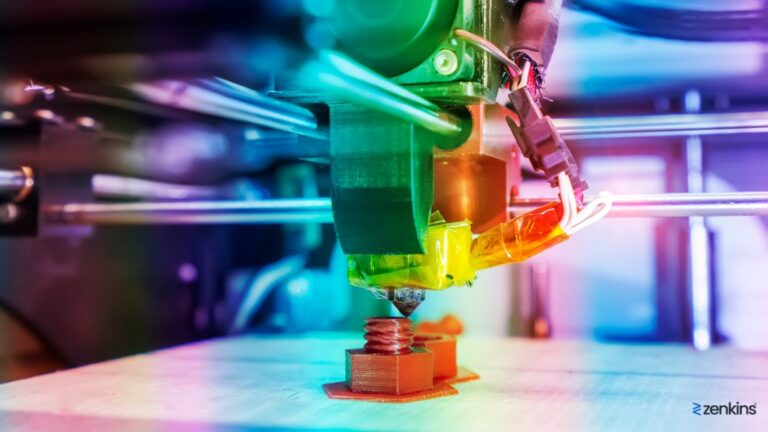As the world rapidly evolves, so does the field of software testing. The role of Artificial Intelligence in software testing is becoming nothing short of indispensable. From automating tedious tasks like regression testing to predicting and preventing potential errors before they occur, AI is taking software testing to a whole new level. It allows for more comprehensive and reliable test results in less time, thereby saving companies both time and money. As software systems become increasingly complex, software testing has become a critical component of the software development life cycle. Software testing ensures that software systems are reliable, functional, and secure and that they meet the needs of users and stakeholders. However, manual software testing can be time-consuming, labor-intensive, and error prone. This is where artificial intelligence (AI) comes in. AI can automate many aspects of software testing, enabling faster, more accurate testing that can improve software quality and reduce costs.
AI can perform a wide range of tasks such as detecting bugs and errors faster and more accurately than humans, analyzing large amounts of data to uncover patterns and trends, and even generating test cases using machine learning algorithms. This not only speeds up the testing process but also increases its efficiency by reducing manual labor. Moreover, AI assistants help improve accuracy and productivity by automating routine tasks and providing real-time feedback on potential issues or bugs during testing. As we move towards a world driven by automation and data analytics, AI is becoming increasingly important for software development teams to produce reliable and high-quality software products quickly at a reduced cost. In this comprehensive guide, we’ll explore the role of AI in software testing, drawing on the expertise of leading industry experts.
What is AI in Software Testing?
AI in software testing refers to the use of artificial intelligence technologies, such as machine learning and natural language processing, to automate software testing processes. AI can be used to automate a wide range of testing activities, including functional testing, regression testing, performance testing, and security testing. AI can also be used to generate test data, identify defects, and improve the efficiency of testing processes. This technology enables developers and quality assurance teams to streamline the various aspects of their testing process, including test creation and execution, bug detection and correction, and performance optimization. AI-powered testing tools are designed to learn from past test results, analyze large data sets related to user behavior and system performance, and provide predictive insights for future improvements. With the growing complexity of modern software applications and the need for near-perfect accuracy in digital systems, AI-powered testing can help organizations identify bugs more quickly while reducing errors resulting from manual testing procedures. The incorporation of advanced machine learning algorithms has made it possible for AI systems to adapt as new defects emerge over time, ensuring comprehensive coverage across increasingly complex application landscapes.
Benefits of AI in Software Testing
Artificial Intelligence (AI) is transforming the software testing domain in significant ways, with benefits that range from increased efficiency to cost savings and improved accuracy. AI can help software testers to identify defects quickly, reduce the time taken to complete testing cycles, and predict potential software issues early on. With the use of machine learning algorithms, AI-powered systems can determine user experience patterns and generate test cases based on real-world data. This allows for comprehensive testing of applications under various conditions, leading to fewer post-production issues, enhanced quality assurance processes and reduced test cycle times for faster market delivery. Additionally, AI-powered tools assist in standardizing test cases across different teams or projects, ensuring consistency in testing methods. There are many benefits of using AI in software testing. First and foremost, AI can reduce the time and cost of testing. Automated testing is faster and more efficient than manual testing, and can be run continuously, enabling faster feedback and shorter development cycles. AI can also improve the accuracy of testing, reducing the risk of errors and defects. Additionally, AI can enable more comprehensive testing, allowing for more complete coverage of software systems and improved quality assurance. With these advantages, it’s clear that the adoption of AI in software testing provides a significant competitive edge for organizations looking to streamline their development processes and increase customer satisfaction through faultless applications.
Ensure your software meets the highest quality standards with our expert QA and testing services. Quality is the cornerstone of any successful software. That is why, we at Zenkins provide excellent automated and manual testing services with highly affordable digits.
Don’t risk the success of your software by skipping essential testing. Schedule a consultation with us today.
Challenges of AI in Software Testing
AI technology presents incredible opportunities for software testing, with the ability to automate repetitive tasks and reduce human error. However, with these advancements come unique challenges that require careful consideration. One of the main challenges is the need for specialized skills and expertise in AI and machine learning. AI requires a high level of technical expertise and specialized knowledge, which can be a barrier to entry for some organizations. Additionally, AI can be complex and difficult to implement, requiring significant investment in infrastructure and resources. There is also a risk that AI may miss certain types of defects or issues, which could result in lower overall software quality. The lack of transparency in AI algorithms can make it difficult to understand the reasoning behind a testing decision or result, making it tricky to identify and address errors. The black-box nature of AI also makes it tricky to devise comprehensive test cases, as different variables might not always be visible or understood by humans. As AI becomes more sophisticated, so does the need for specialized skillsets in developing and implementing intelligent automation strategies across an organization’s software development lifecycle. Despite these obstacles, we’re on the cutting edge of transforming how we approach software testing through innovation enabled by AI capabilities.
AI in Software Testing: Best Practices
To successfully implement AI in software testing, it’s important to follow best practices and guidelines. Here are some tips to keep in mind:
Start small and build up: It’s important to start with a small project and gradually build up your AI testing capabilities. This will help you to build expertise and gain experience with AI tools and technologies.
Choose the right tools: There are many AI testing tools available on the market, and it’s important to choose the right tool for your needs. Look for tools that are easy to use, have good documentation and support, and offer a range of features and capabilities.
Focus on test data: AI requires large amounts of test data to be effective. Ensure that you have sufficient test data to support your AI testing efforts, and focus on generating high-quality test data that accurately reflects real-world scenarios.
Monitor and evaluate results: It’s important to monitor and evaluate the results of your AI testing efforts regularly. This will help you to identify areas for improvement and refine your testing strategies over time.
Collaborate and communicate: AI testing requires collaboration and communication between different stakeholders, including developers, testers, and business analysts. Ensure that everyone is on the same page and working towards the same goals to ensure the success of your AI testing efforts.
Essential Resources for AI Testing
To learn more about AI in software testing and stay up-to-date on the latest trends and best practices, there are many valuable resources available. Here are some essential resources for QA professionals:
The AI in Software Testing Handbook: This comprehensive guide covers the basics of AI in software testing, including the benefits and challenges of using AI in testing, and best practices for implementing AI testing.
The AI Testing Manifesto: This manifesto outlines the principles of AI testing and provides guidance on how to implement AI testing in your organization.
The AI Testing Podcast: This podcast features interviews with leading experts in AI testing, providing insights and advice on the latest trends and best practices.
The AI Testing Conference: Attend conferences focused on AI in software testing to learn about the latest trends and best practices in the industry.
The AI Testing Blog: Stay up-to-date on the latest trends and best practices in AI testing by following AI testing blogs such as TechBeacon, DZone, and Testim.
Real-World Examples of AI in Software Testing
There are many real-world examples of AI in software testing. Here are some notable examples:
IBM Watson: IBM Watson uses AI to automate software testing processes, enabling faster and more accurate testing. IBM Watson also provides insights and recommendations for improving software quality.
Applitools: Applitools uses AI to automate visual testing, enabling faster and more accurate testing of user interfaces.
Testim: Testim uses AI to automate end-to-end testing, providing faster feedback and better coverage of software systems.
Mabl: Mabl uses AI to generate and maintain test scripts, reducing the need for manual coding and enabling faster and more efficient testing.
Eggplant: Eggplant uses AI to automate testing across a range of devices and platforms, providing comprehensive testing coverage and improved software quality.
Conclusion
AI is transforming the field of software testing, enabling faster, more accurate testing that can improve software quality and reduce costs. By following best practices and leveraging the latest AI testing tools and technologies, organizations can improve their testing processes and deliver better software products. To learn more about AI in software testing and stay up-to-date on the latest trends and best practices, be sure to check out the essential resources and real-world examples outlined in this guide.
Contact us today to learn more about how we can help you achieve your software testing goals.






